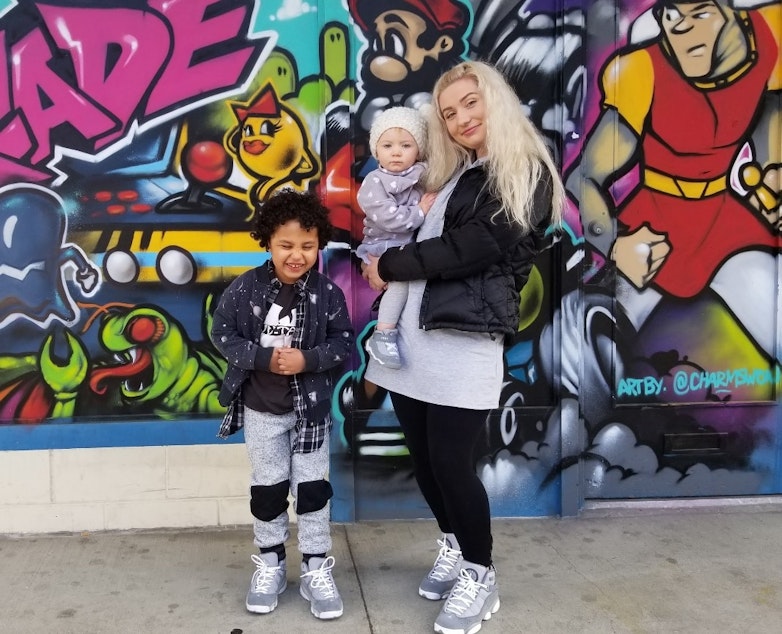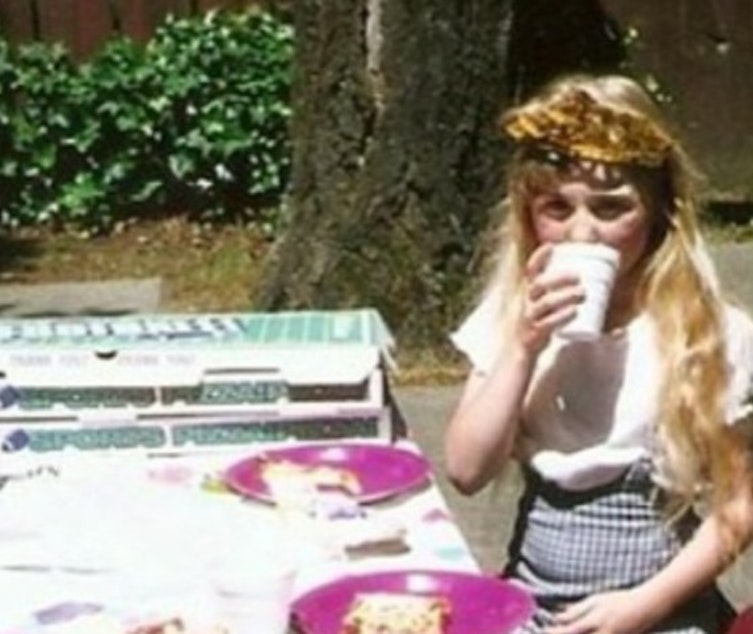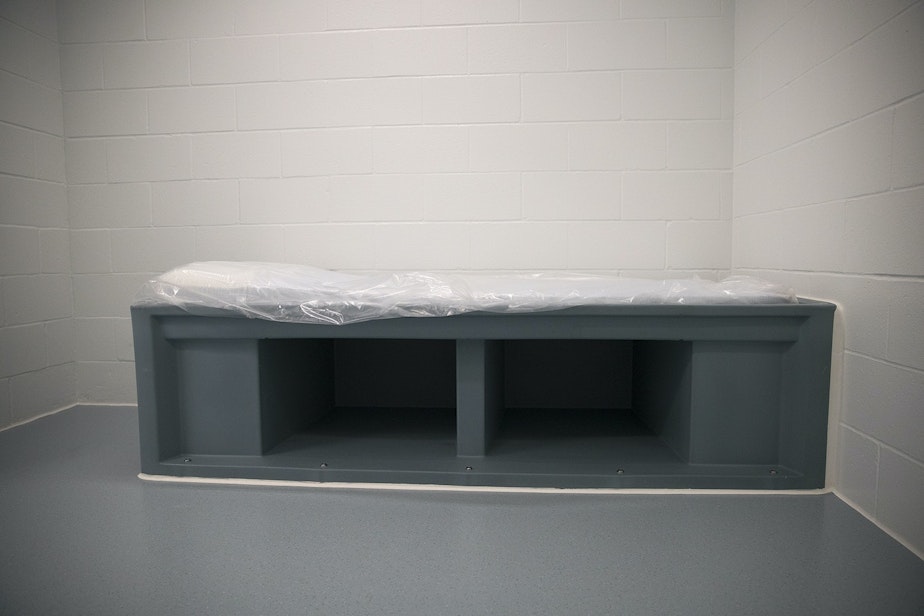Former Seattle foster child reflects on end of youth jail: 'This brings me to tears'

Youth incarceration will be phased out by 2025, King County Executive Dow Constantine announced recently.
Jasmine Jarrell, who was jailed in the King County youth jail seven times, took to social media.
“This brings me to tears," she wrote. "I became a ward of the state in Seattle at the age of 8. As a foster child, I had no rights. I was jailed 7 times, never for committing a crime, just leaving placements. It's the only way foster kids can assert their rights --leave.”
Jarrell spoke with KUOW’s Amy Radil about her experience:
"I was in the foster care system; I started at the age of 8. In foster care, I think you automatically just don’t like police, because that’s who comes to get you from your custodial parent -- it’s never just a social worker. So that’s sometimes your first experience with police.
If you want to leave a placement, you don’t have any say on where you are. When I was younger and in foster care, they would bring me to places that weren’t in Seattle, and they would not allow me to talk on the phone even. There were a lot of restrictions. So I would just leave.
If you left a foster placement, they would call a warrant on you. If you leave home and you have parents, they bring you home.
One of the times I was arrested, I was brought to Spruce Street by an inexperienced cop by mistake. It was where they brought juveniles with run reports who actually have parents.
Across the street from juvenile, it was a world of difference. No cells, regular carpeted rooms, no jumpsuits, big screen TV, Foosball table, you name it. It looked like a community center.
If I had any self-worth left at the time, it would have been squashed right there seeing how much more value was assigned these children. As a foster youth, I had none.

Seven times at least I went to juvenile for leaving placements. And one of the times, I hadn’t even left; I had gotten there too late. Group homes have things like curfews, really stringent rules.
A group home I lived in in Seattle – you’d have to get searched every time you came in; you’d even have to take your socks and shoes off, and they’d pat you down; you’d get random drug tests. And this isn’t a place you’d go because you did something wrong. I just came there late one night and they said, "We already called the warrant on you."
It’s why so many kids end up homeless and on street. After I’d been taken in so many times and tried so many placements, it was just obvious that it wasn’t okay, and I would be better just on my own. I was treated like a criminal.
There was one time I and another foster girl stole chicken strips from Lake City Fred Meyer. And we were stupid enough to eat it at Fred Meyer. We were just hungry, just stupid kids. I never got imprisoned or anything. My point is, I wasn’t a criminal. I wasn’t violent or anything like that. I was just [in detention] for run reports. But when you’re a foster child, it’s a warrant. Downstairs [in the jail] were the children convicted of other crimes. Upstairs was truancy and foster kids who get the warrants.
I was in honors classes when I dropped out of high school. I tried to keep going to high school while I was a runaway, and the police showed up at my high school to arrest me for a warrant.
A kid told me, because I was late to class, "the police are looking for you." I said, "oh thanks," and I just walked out of Ingraham High School.
Why isn’t there an option for that? I wanted to do things the right way. I wanted to still go to school, I just wanted to work and live on my own. I could have had somebody checking in on me or something.
I did end up on the streets because of the run warrants.
By 16, I said, "I’m done, I’m just going to be gone for good."
And then right before my 18th birthday, I went to the police station, and I said, "I have a warrant.”
They took me in one last time, and when a social worker met with me, I said, "I wanted to do this before I turned 18, because I wanted to see if you guys have any help." I wanted a better life.
This social worker was like, "You should have stayed gone. You’re turning 18, there’s nothing to help you."
I’ve learned later in life that there actually are programs for foster children. But I guess there are just so many people who don’t care that are in that field.

So many of these kids, people look at them and say, "Why don’t they go home to their parents?" So many street kids are foster kids who have left placement and would rather be working and living somewhere on their own. I’ve heard that they’ve made progress on those things, which is wonderful.
I’ll be completely honest, I wasn’t physically or sexually abused in any of these placements. Most of it was just not having contact with anyone I knew, sneaking to use the house phone in the middle of the night just so I could talk to my mom. Another part was the dehumanization that I felt in those places. There’s a lot of places you stay in where they just don’t care. It seems like it is a money thing.
It was better for me to actually stay in the group homes where they were staff members. Because when you stay in a family foster home it feels even more mean.
Sometimes they’ll have locks on the cupboards and fridges, they’ll have "their" food and "your" food, like their brand-name food and your off-brand food. So you’re just like, "Screw this, I don’t want to be here."
I don’t think any child ever needs to be in jail, ever. I do understand people have mental health challenges that need constant supervision. We don’t create enough avenues for people to be successful, especially foster children. The success rate is so small and it’s very sad. My story is one of the much better ones.
I made it through a lot, and a lot of people just don’t. But that shouldn’t be the standard. People always want to talk about the "extraordinary" people who make it out of the circumstances. But that’s not the norm, not what we should expect the lowest among us to be able to do. We’re all born with different abilities.
What changed my entire life was when I became pregnant with my son. I was a suicidal child and teen, I was just depressed my whole life pretty much, and I really struggled. When I was 22, I became pregnant with my son, and it was like, finally I mattered. I was good for something.
I just saved money and worked really hard. I ended up getting a retail job, I got promoted, I started a 401k, took advantage of the company match, even though I was struggling to pay my rent in Tukwila some months. I knew that I could eventually take it for a house and that was always my dream: I’m going to buy a house, my kids are never going to be homeless ever. That was my turning point. I did end up fulfilling my dream of buying a house a year and a half ago.
I am 31 now. I am white and have seen clearly the privilege I was given due to the color of my skin versus children of color in foster care and on the street. Now that I've been able to pull myself out of a once-dark place, I feel compelled to share my story and do what I can to further the human rights, dignity and equality of all people.
I am also the mother of a Black son with developmental disabilities, and I have a daughter. My main focus right now is fighting for a better world for them both. My concentration is on equality and safety for my son right now. Black people are killed by police at an alarming rate, but if you look into the rate of killings of citizens with disabilities, it's even worse. I don't want to be terrified of any interaction my son has with police.
[Editor's note: Since Jarrell left foster care, there have been major changes to the system in Washington State. Just last month, a new state law took effect that prohibits the use of detention for foster children who flee their placements. Debra Johnson is the spokesperson for the WA Department of Children, Youth & Families. She said, "For children in dependencies, the bill eliminated the use of detention as a sanction for contempt of court. It also eliminated the use of warrants when children are missing from care. Instead, the courts may issue 'pick up orders' directing law enforcement to return the child to the local DCYF office."]

